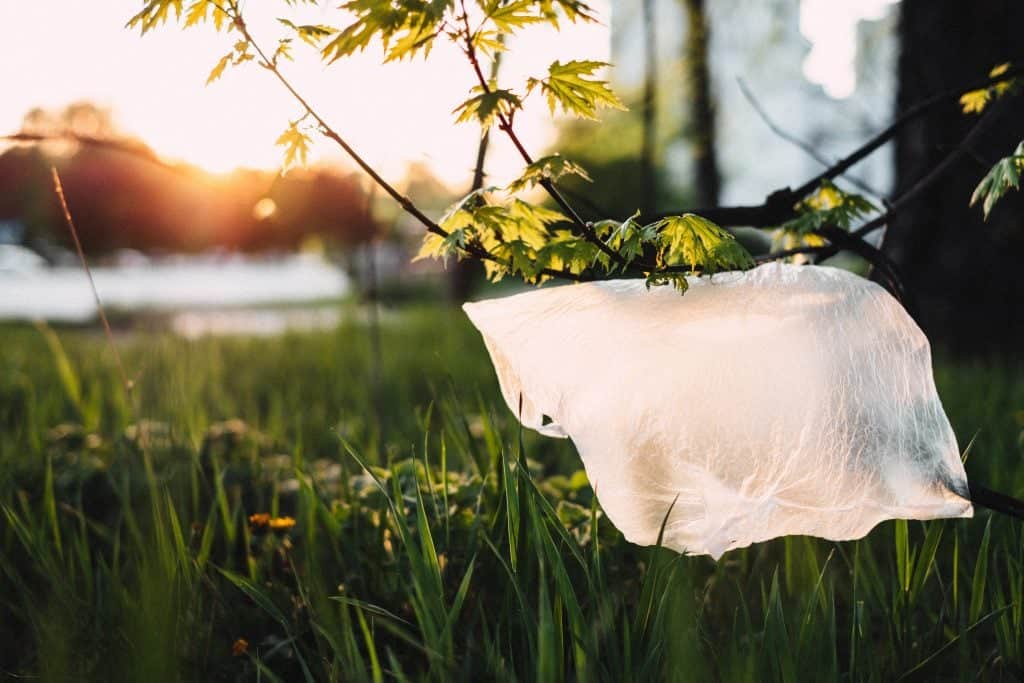
Like the famous “Firework” song by Katy Perry, plastic bags drift through the wind and hope to start again – but they can’t. What’s worse? Tossing them in the recycling is costing the township thousands of dollars.
In May, the township adopted its 2019 municipal budget, which had an increase in taxes to pay for various costs, like recycling. Supervisor of Public Works and Deputy Township Administrator Dennis Chambers said the township went from earning money to paying for its recycling due to China’s changes in acceptable recycling. Specifically, earning roughly $24,000 in revenue to paying $176,000 annually.
Chambers said he reached out to Republic, which the township uses to collect recycling, to re-negotiate a lower rate per ton, and was successful. Loads, however, were getting labeled as “contaminated” because they had plastic bags in them.
“You can look at the back of the truck from what comes out of it on the tipping floor, and it’ll say ‘contaminated load charge, more than 30 percent of plastic bag material,’” he said. “You can actually see it in the pile.”
Republic, he said, was adding a $75 surcharge to the contaminated loads, which would “double what the township normally pays for.” The township, he added, is working on a contract with a new recycler.
“[The new recycler has] been telling us they won’t be picky over plastic bags and contaminated loads and charges,” he added. “We’re on an average of two or three times a week with a contaminated load charge.”
The concept of rejected or contaminated loads from plastic bags isn’t new. Several towns in the area have been incurring additional recycling charges because of the material, sometimes in the thousands, as Harrison Township has been experiencing.
“People would line their kitchen trash cans with a small trash bag or a ShopRite bag in and toss it in the cart,” Chambers said. “It’s never been a recyclable material, but until this whole thing with China and the ‘zero percent contaminated waste’ came along, they always found a way to process them.”
Because the companies are having their rejected loads sit on docks or bars, they’re passing the costs of the rejections off to municipalities, hoping to change the way people recycle.
Additionally, he said it will take a while for residents to get used to tossing plastic bags in their garbage cans, among other changes in recycling.
“Let’s take a water bottle cap for example, something like that used to be recyclable,” he said. “Now, because of the type of plastic it is, it’s not.”
Around the country, he said, many towns are considering switching back to dual-stream recycling. During the process, people toss their recyclables in three containers: glass (brown, green and clear), cardboard and everything else, much like what’s seen in national stores like Starbucks.
“The problem is, is that it’s so expensive,” Chambers said. “The cost of disposal is not high enough yet to justify going back to dual-stream. You need more people, trucks, maintenance, workers comp, a huge expenditure.”
Chambers said despite the costs of recycling, the township doesn’t have plans to outright ban the bags, largely due to the impact on residents and the manpower it takes to check carts and hand out warnings or fines.
“Taxpayers already pay enough and are already getting hit with fines, surcharges or permit fees when they come to do business in the town,” he said. “So, I think that would be a last-ditch effort for us.”
So what should be in your recycling containers? Flattened and unsoiled cardboard, newspapers, magazines, office paper and mail, beverage and food cans, and plastics No. 1 and 2. Additionally, all items in a recycling container must be cleaned and dried.
“It sounds wasteful to have to throw [plastic bags] in the trash, but that’s what they are,” he said. “It’s where they’re going to end up. They’ll either be buried or burnt because there’s no market for recycling them anymore.”









